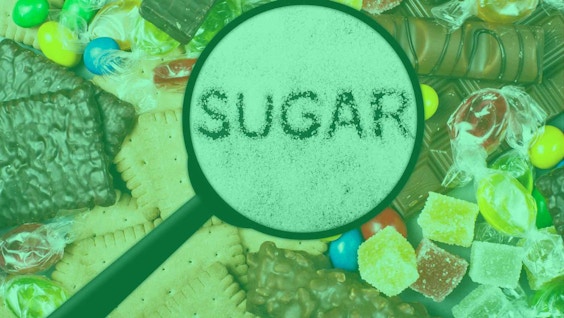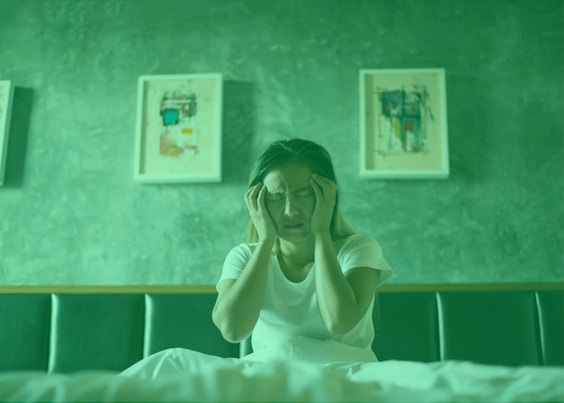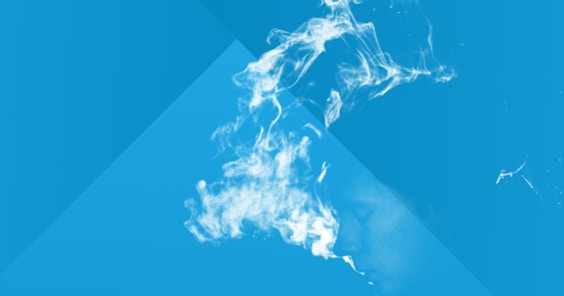I Am Sober is a free app that helps you get some control back in your life.

15 Myths About Addiction
Last Updated: Tue, January 23, 2024Addiction is a complicated subject and largely due to the misinformation or, in some cases, outdated information. For instance, take the term “alcoholism”. As a term, alcoholism is as vague as it is broad. It’s used as a layperson’s catchall for alcohol addiction, alcohol abuse, and alcohol dependency –-- which can be different symptoms. Someone who’s dependent on alcohol will experience withdrawal, while someone who’s abusing alcohol may not experience withdrawal, but consciously continue to consume the substance despite continued negative effects.
Even the medical community has a hard time agreeing on how to diagnose someone with an alcohol problem with the US and the UK differing for some time. As recently as the last five years, the Diagnostic and Statistical Manual of Mental Disorders (DSM) has merged two types (alcohol dependence and alcohol abuse) under the umbrella Alcohol Use Disorder (AUD). Even AUD has three levels of severity depending on your combination of symptoms, but I digress.
As research continues, addiction becomes more and more misunderstood by the masses, so here are the top 15 myths about addiction.
1. Addiction Is A Choice
Easily number one on this list because so many addicts experience the uninformed layperson begging the question, “Why don’t you just stop?”
Alcohol Use Disorder is a chronic relapsing disease.
While genetics do play a role, what’s important to note is everyone’s brain plasticity. Some people can drink a cup of coffee at 6:00 PM and feel nothing, others drink a cup at the same time and can’t sleep.
Drug addiction rewires your brain, triggering that “immediate gratification” button. Many drugs go one step further and suppress various receptors in your central nervous system, including pain. This can trigger a dependency instantaneously, making you need the drug to function in the same way a non-addict might experience starvation. You become physically and mentally dependent on the drug and it takes a great deal of effort to detox and rebalance the chemicals in your brain.
2. Addicts Deserve To Be On The Street
This is a thought that’s not usually said aloud, but many people believe addicts living under a bridge arrived at that point due to the lifestyle they lead. This isn’t true. No one grows up wanting to be an addict.
Take a look at the opioid crisis. Opioids are pain relievers, many of which are highly addictive, and thereby need a prescription. However, if a healthy person winds up in a car accident and is prescribed pain relievers, they can become addicted. Worse, if the prescription expires (or their insurance stops covering it), and they start undergoing withdrawals, they’re going to find an alternative.
People who use heroin, almost never start there.
3. Addicts’ Come From Low-Income Housing
Usually addicts end up in the low-income bracket due to an inability to hold a job, continue paying rent, and support their addiction.
But to dispel this, you only need to take a look at People magazine or read a celebrity’s biography. It doesn’t matter what your income level is, you can still suffer from addiction and many die from it.
4. Rehab Will Get You Clean
Rehab is a good place to start, but you cannot expect to solve a lifelong disease in a 30-day program.
Addiction is a chronic, relapsing disease –-- not a passing virus. For addicts, it’s a 24-hour struggle for the foreseeable future. Rehabilitation centers and clinics are useful for getting you started on the path to sobriety, but it takes a much larger support system to recover. It takes therapy, community, meetings, and daily discipline.
5. You Have To Hit Rock Bottom
For many addicts, they do hit rock bottom, but that doesn’t mean they need to hit rock bottom to realize they have a problem and need to get treatment.
Rock bottom usually turns an addicts’ life around simply because they cannot afford the drug and going a few days without it can provide enough clarity to recognize that they have a problem. For some addicts, making a daily list of goals can help usher in “long term” planning instead of triggering the immediate gratification of their drug. This is useful as a pattern among addicts is, what’s preventing them from achieving said goals, is their addiction.
For some people, their desire to spend time with their children is what it takes to get sober. For others, witnessing the drug take the life of their friends is the turning point.
Moreover, if you’re a friend of someone you know is suffering, don’t turn a blind eye until they hit rock bottom. Constant reminders help.
6. You Can Cure Addiction
Nope. First of all, genetics do play a role, but addiction isn’t curable. Thinking it is, is what causes many people to substitute one vice for another. If you’re an alcoholic, you won’t be able to take one sip of wine and refrain from more.
That said, it does get easier to manage. Addiction causes a chemical imbalance in the brain where “immediate gratification” trumps any type of long term planning. And long term could simply mean planning on going to a grocery store that evening.
Daniel Kahneman put it best in his book, Thinking, Fast and Slow. The “fast” part of the brain is the impulsive part, the immediate gratification part, that can help you swerve out of the way of an incoming car. The slow part is the part that takes your budget into account each time you make a purchase or make a decision that will affect the rest of your day. Because addiction lets the “fast” side dominate, your brain needs balance. While this is challenging initially, it gets easier as you continue to balance out.
That said, this next myth needs to be addressed…
7. You’ll Always Be An Addict
While it’s true you can’t cure addiction, you won’t always be identified as an addict. Many people diagnosed with a terminal disease end up defining their lives by their malady. They become who they are because of the disease, and it can be such a powerful identity that –-- if by some miracle –-- they’re cured, they can slip into a depression; that identity that they built no longer exists, and they’re left wondering what to do with –-- or how to define –-- themselves.
Similarly, while addiction is a chronic relapsing disease that you cannot forget, you don’t need to identify as a junkie, addict, or alcoholic. Many people use this as an opportunity to define themselves. To not identify as “addict” but as their name. To Alcoholics Anonymous’ credit, they do this (consciously or not) with the opening line, “My name is (blank) and I am an alcoholic.” You are you first and your disease second.
8. You Will Relapse
Most people do relapse and Alcohol Use Disorder is even defined as a chronic relapsing disease, but that doesn’t mean you will or that “relapse” is a requirement to become sober.
Chat in any sober community or read any sober story and you’ll find a myriad of thought processes when someone relapses. For some, it’s that they’ve been sober for X amount of days and wrongly think they can handle just a little bit. Of course, that’s not how our brains are wired. If a person can become addicted to methamphetamines from one use, you better believe a recovering addict will fall right back into their previous state.
Others get low. Even if their lives are going well, there’s a devil on their shoulder nagging at them, telling them they’re worthless, that they still won’t amount to anything, that they need a fix if they want to survive. For some people this can become very dark and their thoughts can turn suicidal, which is all the more reason to a have large, multileveled support system. Not just a phone call to a sponsor, but community meetings, one-on-one therapy, time off to attend rehab, chats with friends, a sobriety app, etc.
A relapse is not inevitable. That said…
9. To Relapse Is To Fail
A relapse is not uncommon and it should not be viewed as a failure. It’s a big deal simply to recognize there’s a problem. How many addicts have found themselves living on the street, trading favors to support their addiction, and not realized how bad their dependence has become?
Even if you relapse, you’re not starting from square one. You’ve acknowledged there is an issue and regardless of whether you spent 20 years sober, 1 year sober or 1 week, you learn. You recognize the trigger that made you relapse and going forward, you know how to conquer it.
10. You Can’t Hide Your Addiction
Some people dread the idea of admitting they have an addiction. Some alcoholics feel like all eyes are on them whenever friends want to head to a bar or a waiter asks what everyone will be drinking. If letting your present company know you’re in recovery is a touch point, there are ways to hide it.
Some people use the excuse “I’m the designated driver tonight” or “I doing a cleanse.” But some find even more creative ways to avoid the usual excuses. If a waiter comes by asking what you want to drink, you can ask what kind of whiskey they have and after they read the selection, just turn your nose up and say, “Nevermind, I’ll stick with a tea.”
11. Everyone Will Judge You
Converse to the last point, some people choose to celebrate and openly share their drug-free lifestyle. For many people, this is a great way to create more accountability on your part. If you’re hitting milestones and sharing them to social media then you’d also be letting down a lot of people who are following your story.
That said, most people in recovery, don’t care how they’re viewed. People who are not addicts won’t understand how hard it is to quit the vice because on their end, it requires no effort. Some people make (have made) the argument, “I don’t reward myself a chip for each day I go without heroin. I just don’t do heroin,” but for them, it’s a non-issue; it requires no effort. An addict needs to consciously work every day to abstain. Especially, in the early days, it is a mental workout for all of the waking hours –-- and if your withdrawal causes insomnia, it can literally be 24 hours.
Today, most people don’t judge addicts, but celebrate them. Simply admitting you have a problem shows character and strength. Plus, if people were going to judge you for anything, it’s probably no worse than when you were high – you just weren’t aware of it.
12. You Can Be A Functioning Addict
If you’re addicted to a substance, rational thought is compromised. Everything is done as a means to your next fix. “Rational” thought does not factor in. Yet there’s a odd limbo for some addicts –-- but especially alcoholics –-- where they recognize they partake in a substance more than is healthy, but believe that other achievements are enough to warrant continued use.
For instance, an addict may be living paycheck to paycheck, but still hold down a job. Therefore they announce themselves as a “functioning alcoholic”. This is a myth. There is no such thing as a functioning addict. Being addicted puts you at an enormous disadvantage and means you’ll always be on the precipice of a meltdown. Some people are able to perform the same task day in and day out, but then if one piece of their normal routine changes --– say, they’re moved to another cash register –-- then they lose it. Worse, because of the false sense of confidence that they’re a functioning addict, it usually leads to a heated departure from the work place rather than a signal to get help.
13. Only Hard Drugs Are Addictive
Drugs, alcohol, food and habits (gambling, porn) are all addictive. Most of these fuel our immediate gratification; a self-serving rewards program.
If electrodes are attached to the pleasure centers of the brain, rats (and people alike) will continue to stimulate themselves. In David Linden’s book, The Compass of Pleasure, he tells of an experiment wherein a woman stopped tending to her personal hygiene and stopped seeing her family to continue dialing up the stimulation. Even when she asked friends to take the dial away she could not resist.
Again, addiction creates a chemical imbalance in the brain. Rather than see the long term goals, the brain continues to feed the short-term immediate rewards. This part of the brain becomes more routine and habit and it becomes harder and harder to think long term –-- whereas it becomes autonomic to gratify the short term. While genetics do play a role in many addicts, it is feasible for almost anyone to become addicted.
14. You Can’t Be Addicted To Prescription Meds
This myth is what led to the opioid crisis today. Prescription drugs are some of the most addictive stimulants you can take. It’s become so bad that many central nervous system (CNS) stimulants are not prescribed unless all other options have been exhausted.
This myth started with the drug manufacturers and while it’s easy to point the finger at them, numerous parties are to blame including doctors and insurance agencies –-- as many insurance companies will cover cheaper, but more addictive drugs as opposed to their less addictive counterparts.
15. Rehab Will Cost A Fortune
Many times a rehabilitation center can seem to cost a lot upfront… but it’s rarely more than the cost of an addiction. Tools like the I Am Sober app double as a sobriety calculator where you can tally how much (on average), you spent on your addiction daily. This way, not only are you able to see how long you’ve been sober, but also how much money you’ve saved –-- the results are frequently followed by gasps, “Ooo”s and “Ahhhh”s.
Depending on the rehab center, it can cost anywhere from $2,000 --- $25,000 for a 30-day program. While that looks daunting in the form of a lump sum. Many addictions can cost upwards of $100,000 a year.
In the case of an alcoholic, take the example of going out to a bar: $35 on drinks, $30 for Uber home, $7 for impulse buy at convenience store, $10 for fast food (since you’re not cooking), $20 in lost wages due to sleeping in from hangover, $55 from parking ticket since you had to Uber from the bar the night before. Now this is a hypothetical scenario of a 24 hour period, but the total cost –-- as a result of the alcohol –-- was $157. That can add up fast and that’s not even including costs from lost or damaged property, medical costs from emergency room visits, or even fines from police officers for a DUI.
Rehab is not cheap, but it is cheaper than your addiction and it is a good stepping stone on the road to recovery.
I Am Sober is a free app that helps you get some control back in your life.




